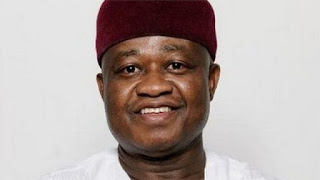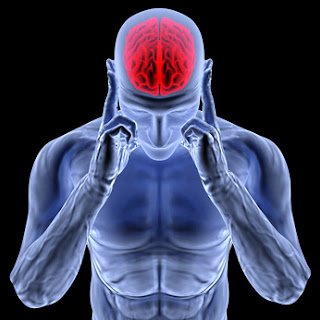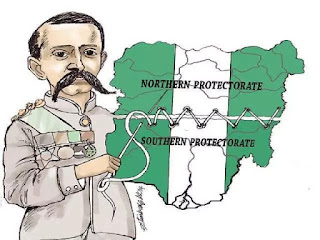READING CULTURE: OUR LOST TREASURE
Recently,
a young Hausa girl’s picture went viral on facebook as she was captured on
camera by the road side in metropolitan Kano selling “Awara” as she clung unto
her book multi-tasking between frying her awara and reading a book.
Unfortunately, as is the trend with us in creating a mountain out of molehill
(especially on the negative aspect) some downplayed her effort in saying she is
reading a hausa novel thus doesn’t deserve the acclaim. To dispel this notion I
will relate a personal story. In my early years, me and my brothers we were
bundled up to a boarding primary school in Roni. Being naturally curious I
developed a reading culture very early on and my first books were mostly Hausa
novels (Magana Jari ce, Iliya dan mai karfi, Gandoki etc) and it gave me an
edge in the ability to read fast and accurately. An Igbo teacher of ours Mr.
Ameachi organized a reading competition for us and I won and I was given seven
shillings, I guess. Those are my first hard earned money and it gave me courage
like no other thing to continue the path till death. In my secondary school
years I was introduced to James Hardley Chase and I became addicted to it that
wherever I goes one is on my hand despite the fact that, for several instances,
I was being stigmatized due to the nude pictures on the cover. I will forever
be grateful to Novels, Hausa and English, as they sow the seed in me to develop
two things, language skills and reading culture. As a science student with a
dream of becoming a scientist I failed physics which shattered any dream of
becoming a full scientist thus I switched onto humanities and decided to read
my first love, Hausa language combined with Islamic studies. In the University
I started reading Quran (not the recital, which as a son of cleric I was used
to as soon as I began to speak). The Quran introduced me to a new world and I
very quickly realized that the Quran is meant to make a scholar of every Muslim
simply because it touches on every subject, even if it is in a telegraphic
manner. The way Quran introduces its topic forced anyone seeking knowledge to
embark on research, what I believe stimulates the Muslims especially under the
Abbasids centuries gone by. I delved into research with my earlier background
in sciences and I found it very exhilarating. Whoever reads the Quran and
employs research will have a grasp on every branch of knowledge to a degree.
That in itself is what God intends all Muslims to be, knowledgeable. My
knowledge in Quran and science enables me wrote books and tens of articles on
the subject for local and international media which eventually earned me an
award from one of the most prestigious academic institution of our time,
Cambridge University in 2008.
Knowledge
is the key to everything and one need to be literate first and develop a
culture of reading before becoming knowledgeable. The ability to read and write
is what distinguished our specie as the only ones that are capable in seeking,
retaining, utilizing and passed on knowledge. Whoever lived in the last half
century, is a bonafide witness of what knowledge can do considering the
proliferation of knowledge in technology, science, medicine, communication and
all aspect of human endeavors undreamt of just a century ago.
Islam,
as the benefactor of modern western civilization, germinates from a remote cave
in the outskirts of Mecca when Prophet Muhammad received the first revelation
from his lord. What was Islam’s first commandment but “Read” and the unlettered
prophet inquired what should he read. Does the angelic reply commands him to
pray and fast or give alms? Rather it goes straight into the biology and
science of creation. Read, says the Archangel how your lord created man, the
epic of creation, from a congealed blood. How could anyone understand that?
Simply through research and reading the documented knowledge written by the pen
of men as taught by God. The first commandment in Islam has enjoined us to
read, not only Holy Scriptures but all knowledge under the sun, even if it
comes from the devil because you need to know the devil to run away from him.
The search of knowledge has never been so crucial in any religion like Islam,
as unlike earlier religions, knowledge is not an exclusive of the learned class
but incumbent upon one and all. Thanks to the Abbasids caliphs, Harun Al-Rashid
and his son Al-Mamun, Islam reached its golden age under their rule as they
promotes research in most branches of knowledge: science, medicine, philosophy,
and education, that resulted and impacted on almost every major discovery in
the sciences of later centuries. Harun Al-Rashid built the “Baitul-Hikma”
(House of Wisdom) which happens to be the first International research center
at the heart of the then largest city and capital of the world, Bagdad, which
was founded by his Great-grandfather Al-Mansur. Bagdad boasts of having the
largest selection of books in the world at its peak but when the armies of the
Golden Hordes under Hulagu Khan (Grandson of Ghengis Khan) sacked the city and
massacred its inhabitants, the Tigris river was said to have turned black due
to the ink of hundreds of thousands of manuscripts the Mongols throws into the
river. This marked the end of the Abbasid Caliphate and also an end to the
Islamic Golden age in the Middle East.
After
the fall of Umayyad’s in Arabia an extension of the caliphate arose in the west
in present day Spain under the Muslim and became, a few centuries later,
another capital of the world under the Muslims. This city is Cordova, which
ruled the Iberian peninsula of Europe for the better part of seven hundred
years and remains the gateway of knowledgpe transfer from the Muslims to the
Europeans. At its height, Cordova has over seventy libraries (while in the 10th
and 11th centuries not a single public library existed in the whole of Europe)
where hundreds of manuscripts were being translated from Greek as half a
million books in art, literature, philosophy and science fed the mind of
scholars that flocked from France, Germany and England to drink from the
fountain of learning which flowed only in the cities of the Muslim Spain. The
surgeons and doctors of Andalusia were in the van of science: women were
encouraged to devote themselves to serious study, even a lady doctor was not
unknown among the people of Cordova in that age. Mathematics, astronomy,
botany, history, philosophy and jurisprudence were to be mastered in Muslim
Spain, and Muslim Spain alone. The practical work of the field, the scientific
methods of irrigation, the arts of fortification and shipbuilding, the highest
and most elaborate products of the loom, the graver and the hammer, the
potter's wheel and the mason's trowel, were brought to perfection by the
Spanish Moors. In the practice of war no less than in the arts of peace they
long stood supreme. Their fleets disputed the command of the Mediterranean with
the Fatimids, while their armies carried fire and sword through the Christian
marches. The Tsangaya system that develops in Andalusia, of attaching schools
for young children in mosques, develops to become the seventeen universities in
the empire when the whole of Europe then had only two universities. Most of the
present etiquettes observed in European educational institutions that spread
around the world were inherited from here. The collegiate systems in
universities, specialization and awards of degrees up to professorial level and
even the donning of the academic gown that was fashioned after the Arab robes
and turban originates here in Cordova’s tsangaya system. Paper, that has become
key in the spread of knowledge across the world, originates in Egypt about 3000
BC and reached Mecca in 707 AD and through Andalusian empire some 400 years
later reached Europe in 1109 AD.
What
Cordoba was during the Andalusian Empire is what New York is to present western
civilization. The city has over 900 public baths, a social feature unknown in
Europe at that time, thus the saying “A poor moor would go without bread rather
than without his soap”. Across the Mediterranean in continental Europe, taking
bath, even by the Queen of England at that time could only be under the advise
of her physicians. The Arabs introduces white silk underwear’s to promote
hygiene. At a time when open gutters greet France urban dwellers and garbage
are thrown on the street of London, Cordoba has expansive boulevards lined with
trees and candles lighted the streets at sundown to burn till morning. The
paved streets run across the city for miles and miles crisscrossing the city.
For nearly eight centuries, under her Muslim rulers, Spain set to all Europe a
shining example of a civilized and enlightened State.
Three
books, The decline and fall or Roman Empire (Edward Gibbons), The Intellectual
Development of Europe (John William Draper) and The Moors in Spain (Stanley
Lane-poole) showed how Europe was so incomparable to Muslim Andalusia and the
efforts made by Europeans in infiltrating the Iberian Peninsula out of their
marvel of the camel riders and their advanced civilization. This contact sows
the seed of European Renaissance that is to occur in the later centuries of 14th-17th,
which was actually not a renaissance but a reactivation of the Muslims legacy.
Al-Khwarizmi, the great mathematician, introduces Hindu-Arabic numerals
centuries after they have been devised. Unlike the numerals used by the Romans,
Hindu-Arabic numerals includes zero, a mathematical device unknown to Europe at
that time. In fact this single contribution alone has revolutionized
Mathematics, Physics and even chemistry and has been the seed of computer
invention. Muslim astronomers charted the heavens, giving many of the stars the
name we use today. Muslim Astronomer, Al-Sufi, published his Book on fixed
stars in which he described Andromeda as a “little cloud” pre-empting the idea
of galaxies. Al-Biruni described the Milky Way in the 11th Century but it was
Galileo, 600 years later that was credited with this discovery in the west.
Likewise, Al-Nafis of Damascus discovered blood circulation in the 14th Century
(His work was translated into Latin in 1547) but the discovery was suppressed
only to be credited to the English scientist, William Harvey much later in
1628. Omar Khayyam in the 12th Century determined the length of the year to
365.24219858156 days to only be confirmed in the 21st century by the Hubble’s
telescope with 365.241290. Al-Maimon had also ascertained the size of the earth
from the measurement of a degree on the shore of the Red Sea—an operation
implying true ideas of its form, and in singular contrast with the doctrine of
Constantinople and Rome. While the latter was asserting, in all its absurdity,
the flatness of the earth, the Muslims in Spain were teaching geography in
their common schools from globes. Avicenna’s (Ibn Sina) book Qanun fil Tibb, a
science encyclopedia, was a main textbook at Montpelier and Louvain
universities until the mid-17th century. Ibn Rushd’s (Averroes 1126-1298) works
on philosophy was what influenced western philosophy. To him is imputed the
discovery of spots upon the sun. Muslim scientist also explored chemistry
developing methods to manufacture metallic alloys and test the purity of
metals, which has been the seed of industrial revolution centuries later. Words
in many scientific disciplines had Arab origin, words like Alkali, Alchemy,
Algorithm, Average, Alcohol, Almanac, Aorta, Admiral, Alcohol, Algebra, Syrup,
Julep, Elixir, Chemise, Cotton, Cipher, Carat, Zenith etc. in fact Arabic
became the international language of scholarship. On “History” none could rub
shoulders with Ibn Batuta, unlike Historians like Democritus and others, he
traveled all over the world writing his version of history as he saw it. He
traveled for over 120,000 miles spanning the three continents at a time when
there were no motor cars and planes.
In
conclusion, we have to realize that knowledge is power and it is what made us
the supreme creatures on the planet. Starting as hunter-gatherer society we
evolved to colonize not only our earthly environment and the creatures therein
but we are now colonizing space. The Quranic first commandment is “read” and to
do that you must first develop the culture, even if you do you must learn to
read everything under the sun to be the global citizen God commands you to be
in the Quran Q45:3-5 "Verily in the heavens and the earth, are signs for
those who believe. And in your creation and the fact that animals are scattered
through the earth are sighs for those of assured faith. And in the alternation
of night and day and the fact that God sends down sustenance from the sky and
revive therewith the earth after its death, and in the change of the winds are
signs for those who are wise"
That is to study the
physical and the biological sciences in Astronomy and Geography, Physics and
Chemistry, Meteorology and Oceanography, Biology and Evolution, Zoology and
Botany and History and Spirituality. In all of these subjects, man will be able
to realize the power bestowed on him and to a larger extent the reasons behind
his existence, as he will, at every turn, notice the signature of his creator.




Comments
Post a Comment